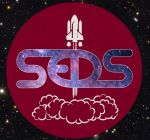The goal of the MIT Space Seminar is to give attendees a general understanding across various space-related disciplines by bringing prominent speakers to MIT. The seminar in 2018 will have a focus on physics/astronomy, NASA/astronauts, and the private space sector. Each speaker will bring expertise in their individual disciplines, but the topics will be understandable to newly minted space enthusiasts as well. The seminar will be open to MIT affiliates and members of surrounding space related institutions. It will also be broadcast through a webcast, which will be streamed for the other SEDS chapters as well as any other interested parties. More detailed descriptions of each speaker are located at the bottom of the page. If you want to be added to the SEDS mailing list for updates to the seminar, please email manweic'at'mit.edu. The MIT Space Seminar 2018 was made possible with support from the MA Space Grant and the MIT Media Lab Space Initiative.
9/20 (6pm in 33-418): Tobias Marriage, professor in physics and astronomy at The Johns Hopkins University. Current PI of the Cosmology Large Angular Scale Surveyor, a telescope based in the Atacama Desert searching for the sign of primordial gravitational waves imprinted on the Cosmic Microwave Background.
9/27 (6pm in E14-244): Pradeepan Parthiban, business development at Firefly, a start-up rocket company focusing on serving the small-satellite market.
10/4 (6pm in 33-418): Vladimir Airapetian, professor studying exoplanet habitability. Link to talk here: https://youtu.be/wi8QrAz3LI4
10/18 (6pm in E14-244): Justus Killian: Principal at Space Angels, a venture capital firm focused on investing in space start-ups.
11/15 (6pm in E14-244): Marco Chiaberge, astronomer at the Space Telescope Science Institute. Marco’s latest work on the ‘kicked’ black hole was featured recently in Nature magazine. Postponed until the spring due to Hubble's gyro problems.
11/29 (6pm in E15-341): Pete Worden, chairman for the Breakthrough Prize Foundation and former director of NASA Ames Research Center.
12/6 (6pm in E14-244): Zac Manchester, assistant professor at Stanford. Zac initiated the KickSat project while in grad school. His current research focuses on nonlinear dynamics, control, optimization, spacecraft, and robotics.
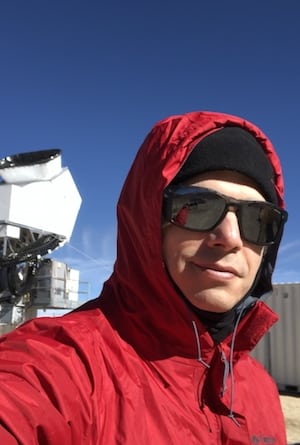 Tobias Marriage’s research interests lie in cosmology and astrophysics with an emphasis on the cosmic microwave background (CMB). His research activities include millimeter-wave instrumentation, fieldwork, and analysis. Marriage played a major part in building the Atacama Cosmology Telescope (ACT), a mm-wave telescope 5,000 meters above sea level in Chile that studies fine angular-scale structure in the CMB. He and his group continue to work with ACT data and other datasets to study galaxies and galaxy clusters. Marriage is now a Co-PI of the Cosmology Large Angular Scale Surveyor (CLASS) project. CLASS is an array of telescopes designed to measure the CMB polarization on the largest angular scales over a broad range of frequencies. The primary goal of CLASS is to detect and characterize the expected gravitational waves from inflation via the induced B-mode polarization pattern in the CMB. CLASS also measures when the first stars formed (by constraining the optical depth to reionization) and searches for large angular scale polarization anomalies that could provide new insights beyond the current cosmological paradigm.
Tobias Marriage’s research interests lie in cosmology and astrophysics with an emphasis on the cosmic microwave background (CMB). His research activities include millimeter-wave instrumentation, fieldwork, and analysis. Marriage played a major part in building the Atacama Cosmology Telescope (ACT), a mm-wave telescope 5,000 meters above sea level in Chile that studies fine angular-scale structure in the CMB. He and his group continue to work with ACT data and other datasets to study galaxies and galaxy clusters. Marriage is now a Co-PI of the Cosmology Large Angular Scale Surveyor (CLASS) project. CLASS is an array of telescopes designed to measure the CMB polarization on the largest angular scales over a broad range of frequencies. The primary goal of CLASS is to detect and characterize the expected gravitational waves from inflation via the induced B-mode polarization pattern in the CMB. CLASS also measures when the first stars formed (by constraining the optical depth to reionization) and searches for large angular scale polarization anomalies that could provide new insights beyond the current cosmological paradigm.
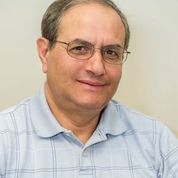 Prof. Airapetian is leading an international effort to understand the effects of exoplanetary space weather on climate and habitability of terrestrial type exoplanets using a multi-observatory observing efforts and numerical simulation techniques. He is a member of the Steering Committee of NASA’s The Nexus for Exoplanet System Science (NExSS), PI of NASA’s Exobiology program on theoretical and experimental studies of prebiotic chemistry initiated by the effects of magnetic activity from the young Sun and active solar-type stars. He is a PI of the TESS Cycle 1 proposal to characterize the signatures and effects of magnetic activity of young solar-type stars on nearby exoplanetary systems, an integral part of the current proposal, and Co-I of another TESS Cycle 1 proposal to study effects of flares from M dwarfs on exoplanets. He is also a Science PI of the 2 recently funded NASA SEEC proposals to model corona-wind systems of young solar-type stars using sophisticated 3D MHD models including BATSRUS and AWSoM. He is leading the NASA/SEEC study to model the rate of atmospheric escape from terrestrial exoplanets driven by XUV flare emission and dynamic pressure of winds from young solar-type stars and M dwarfs.
Prof. Airapetian is leading an international effort to understand the effects of exoplanetary space weather on climate and habitability of terrestrial type exoplanets using a multi-observatory observing efforts and numerical simulation techniques. He is a member of the Steering Committee of NASA’s The Nexus for Exoplanet System Science (NExSS), PI of NASA’s Exobiology program on theoretical and experimental studies of prebiotic chemistry initiated by the effects of magnetic activity from the young Sun and active solar-type stars. He is a PI of the TESS Cycle 1 proposal to characterize the signatures and effects of magnetic activity of young solar-type stars on nearby exoplanetary systems, an integral part of the current proposal, and Co-I of another TESS Cycle 1 proposal to study effects of flares from M dwarfs on exoplanets. He is also a Science PI of the 2 recently funded NASA SEEC proposals to model corona-wind systems of young solar-type stars using sophisticated 3D MHD models including BATSRUS and AWSoM. He is leading the NASA/SEEC study to model the rate of atmospheric escape from terrestrial exoplanets driven by XUV flare emission and dynamic pressure of winds from young solar-type stars and M dwarfs.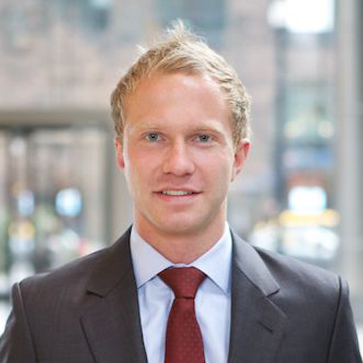
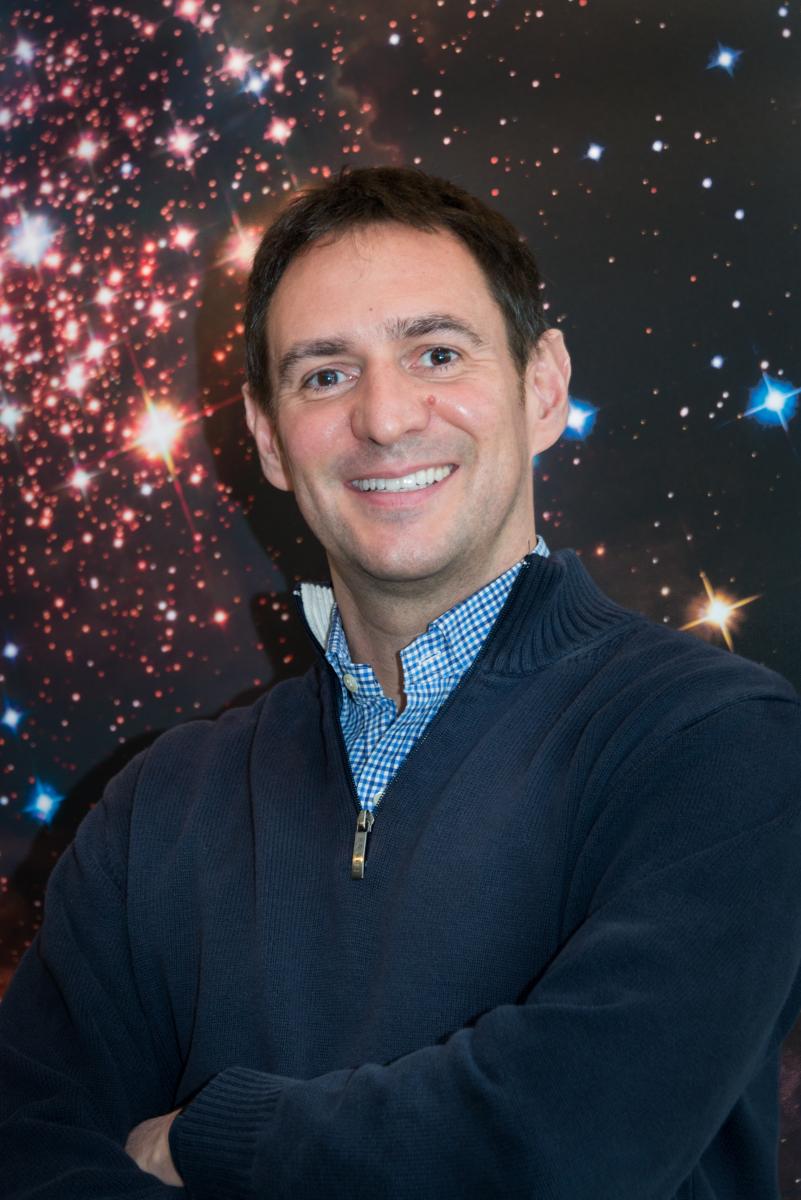
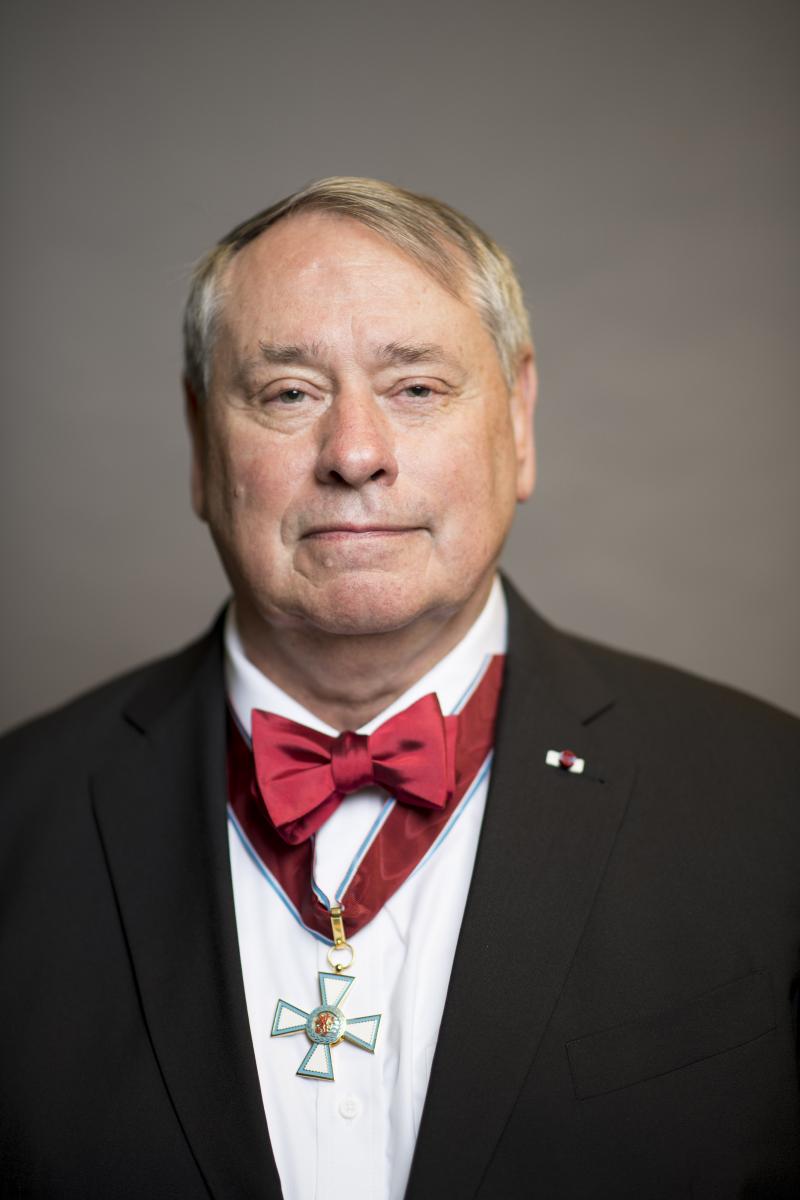
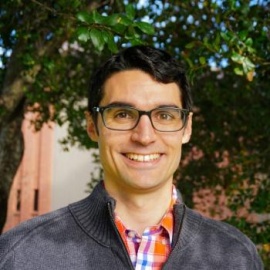 Zac Manchester is Assistant Professor of Aeronautics and Astronautics at Stanford University, a member of the Breakthrough Starshot advisory committee, and founder of the KickSat project. He holds a Ph.D. in aerospace engineering and a B.S. in applied physics from Cornell University. Zac has previously worked at Harvard University, NASA Ames Research Center, and Analytical Graphics, Inc. His research interests include nonlinear dynamics, control, optimization, spacecraft, and robotics.
Zac Manchester is Assistant Professor of Aeronautics and Astronautics at Stanford University, a member of the Breakthrough Starshot advisory committee, and founder of the KickSat project. He holds a Ph.D. in aerospace engineering and a B.S. in applied physics from Cornell University. Zac has previously worked at Harvard University, NASA Ames Research Center, and Analytical Graphics, Inc. His research interests include nonlinear dynamics, control, optimization, spacecraft, and robotics.
